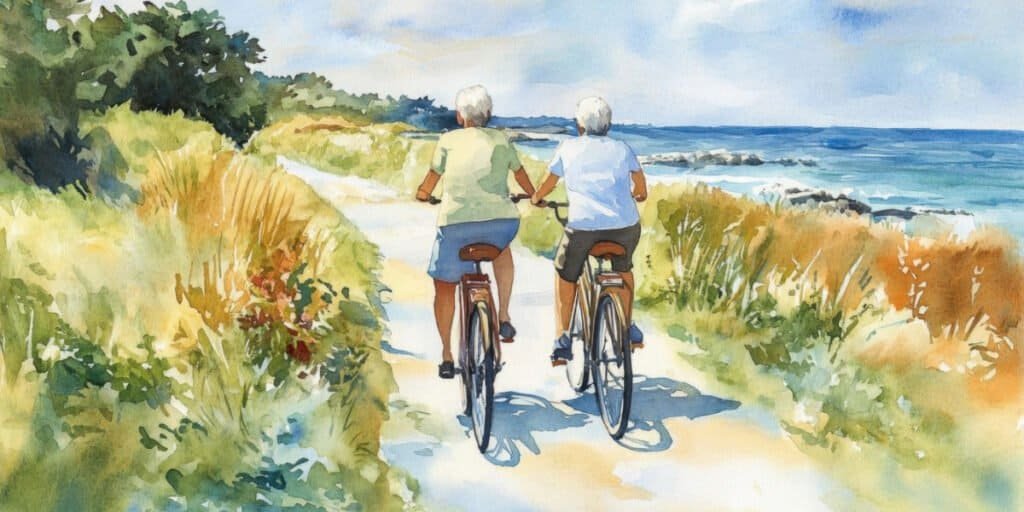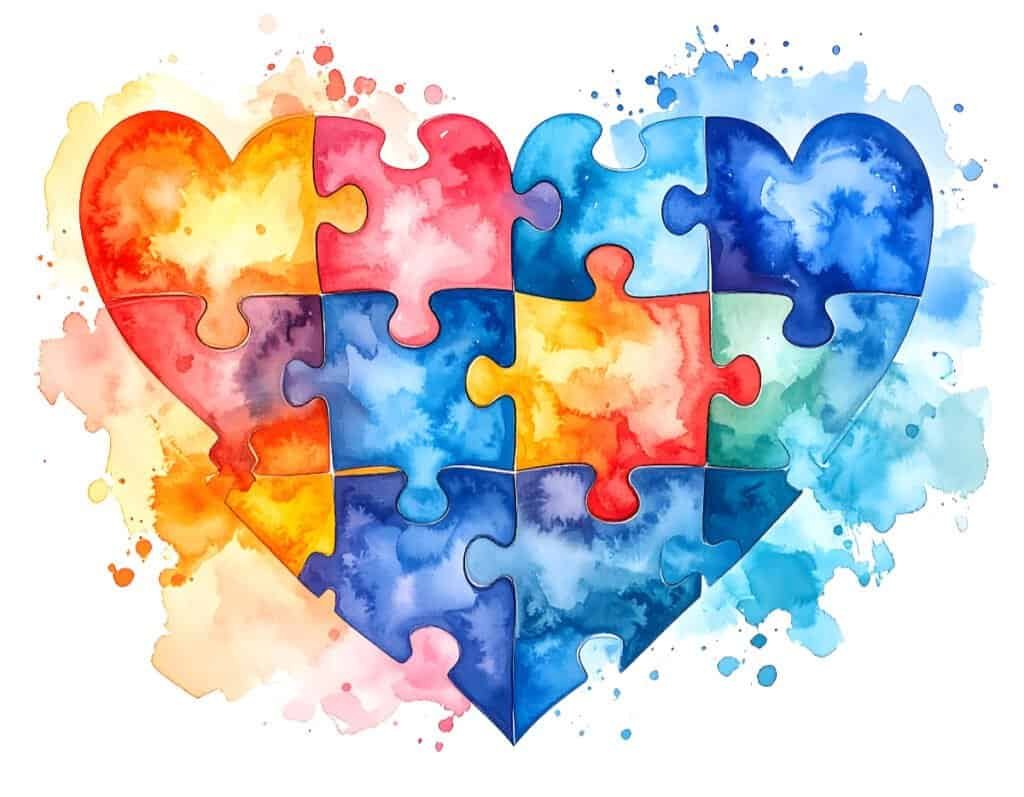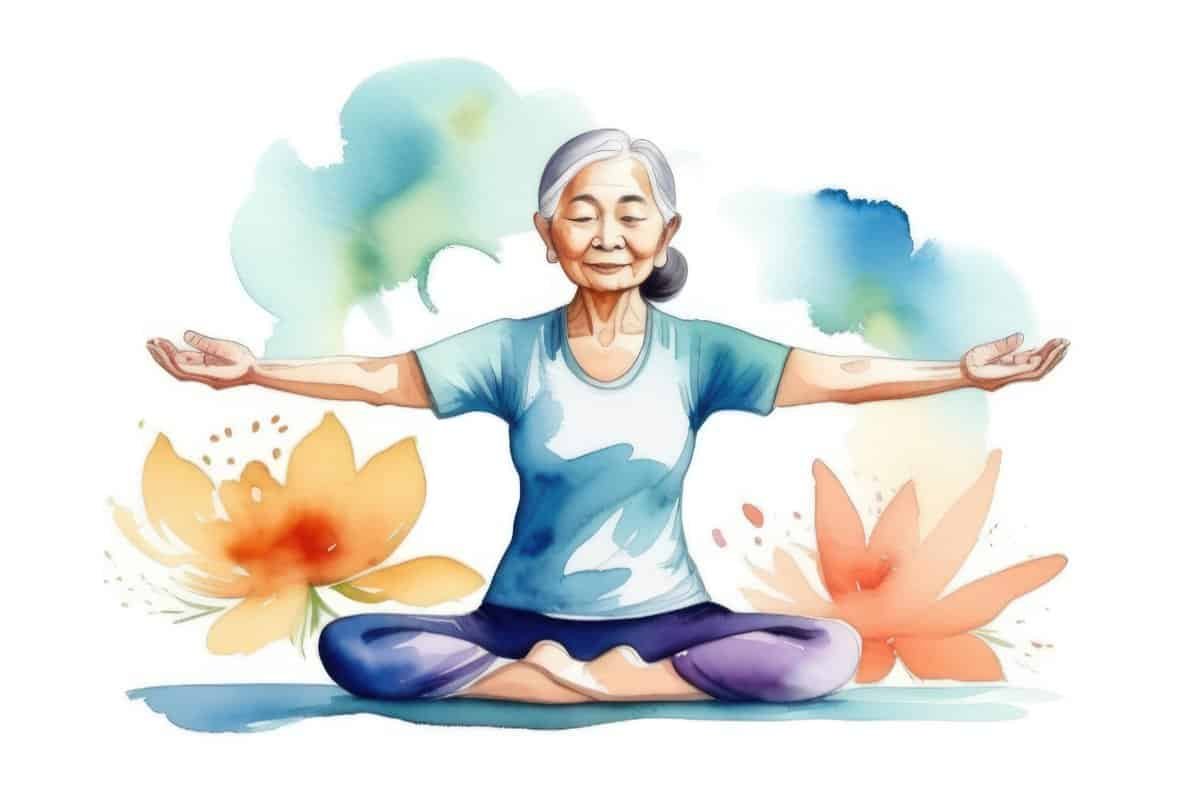Sometimes a day restores you unexpectedly. The work feels right, the transitions flow naturally, and your mind settles in a way you didn’t know you needed. We all have days like this, but we rarely stop to figure out what actually made them work. This post is about recognizing those patterns and protecting them when we can.
If life feels off-balance or overcomplicated, this might help you get back to yourself.
When a Reset Day Happens Naturally
Table of Contents
When a Day Falls Into Place
Quick note: an earlier version of this went live before I finished it properly, so this is the version I actually meant to share.
Some days just restore you without trying. This morning was one of those. Hard work on the farm, quiet focus, a clear head, and an evening that unfolded gently instead of feeling rushed. It made me realize how rarely I pay attention to what actually creates those moments.
I know what helps me feel centered. But knowing and protecting those conditions? Two different things.
Like dreams that fade unless you write them down, these balanced moments disappear if you don’t notice what made them happen.

Why Paying Attention Matters
When life feels busy or shaky, we reach for relief in familiar ways, like scrolling, a favorite hobby, some distraction that usually works. But when we’re already worn out, even our usual go-to activities can backfire.
Gaming, for instance, is something I enjoy sometimes (after everything else is done). But on the wrong day, the noise and pace just disconnect me more. I’ve noticed the same with other things: social media leaving me more wound up, TV overstimulating instead of relaxing.
What restores you in one state can drain you in another.
Understanding that difference matters more than it sounds.
Have you noticed certain activities only help when you’re already in the right headspace?
The Conditions That Create a Reset
Looking back at today, what helped wasn’t one thing, it was how everything worked together.
1. Productive solitude
Being alone on the farm wasn’t empty time. It was quiet with purpose, letting my mind settle while my hands worked.
2. Physical work that meant something
Digging, measuring, and prepping a vegetable bed. Not just exercise for exercise’s sake. Progress I could see. Simple and grounding.
3. Gentle transitions
Farming → shower → slow walk to 7-Eleven → writing.
Each shift prepared me for the next without feeling rushed.
4. Space after the work
Knowing I had the rest of the day free took away that low-level tension that usually shadows evenings.
5. Enough done to quiet the guilt
A productive morning silences that background hum of “I should be doing more,” leaving space to actually enjoy the rest of the day.
None of these are remarkable on their own.
But together, they made a day that genuinely reset me.
What small things make the biggest difference in how balanced you feel?
What We Often Forget
A lot of us move from task to task without noticing the transitions that help us shift gears. A quiet walk. Fresh air. A buffer between physical and mental work. These matter more than they seem, especially as we get older.
When we were younger, balance felt automatic. Now it takes a bit more awareness, a bit more intention.
This isn’t about becoming fragile. It’s about recognizing what actually nourishes us versus what just fills time.
And sometimes, accepting what actually satisfies us feels like wisdom, not limitation.

What small transitions help you shift from one mindset to another?
Knowing What You Actually Need
Here’s what I’ve learned so far:
- I need purposeful movement, not just exercise.
- I need solitude with intention, not isolation.
- I need visible progress, not busy work.
Your needs are probably completely different, and that’s the point. Reset days aren’t universal. They’re personal blueprints shaped by how you think, age, work, and recover.
The trick is figuring out what works for you, not what you think should work.

Which activities genuinely restore you, not just fill time?
The Practice of Noticing
Writing this down is my reminder to future me:
Pay attention when things align.
Not to recreate every detail, but to understand the pattern behind the feeling. Some days give us more information than others. Information we lose if we don’t pause and think about what actually helped.
We treat the things that restore us as optional, yet treat everything that drains us as necessary.
That’s the imbalance.
Protecting What Works
For me, the real question isn’t, “What helps you reset?”
It’s: “Are you protecting the conditions that let it happen?”
If solitude restores you, defend it.
If movement resets you, prioritize it.
If creativity centers you, schedule it like you would a meeting.
What parts of your reset day are you honoring? And which ones do you neglect until you’re already off-balance?
A Gentle Reality Check
We can’t design the perfect day every day.
Life demands flexibility: work, relationships, responsibilities, finances, unpredictability.
But we can learn from the days that work well.
For me, it was purposeful solitude, meaningful physical work, and unhurried time afterward. Even on busy weeks, I can usually create or protect one of those.
Sometimes one is enough.
Your Reset Day Blueprint
So let me ask you:
What does your ideal reset day look like?
Not according to wellness trends, according to you.
Which activities genuinely restore your mind and body?
What transitions help you shift into a calmer state?
Which combinations of needs, when they line up, create that rare sense of balance?
And what would change if you protected those elements as seriously as you protect your obligations?
What would your ideal reset day look like if you designed it intentionally?


Share your thoughts below. I respond to every comment, and your experience often helps others more than mine does.





